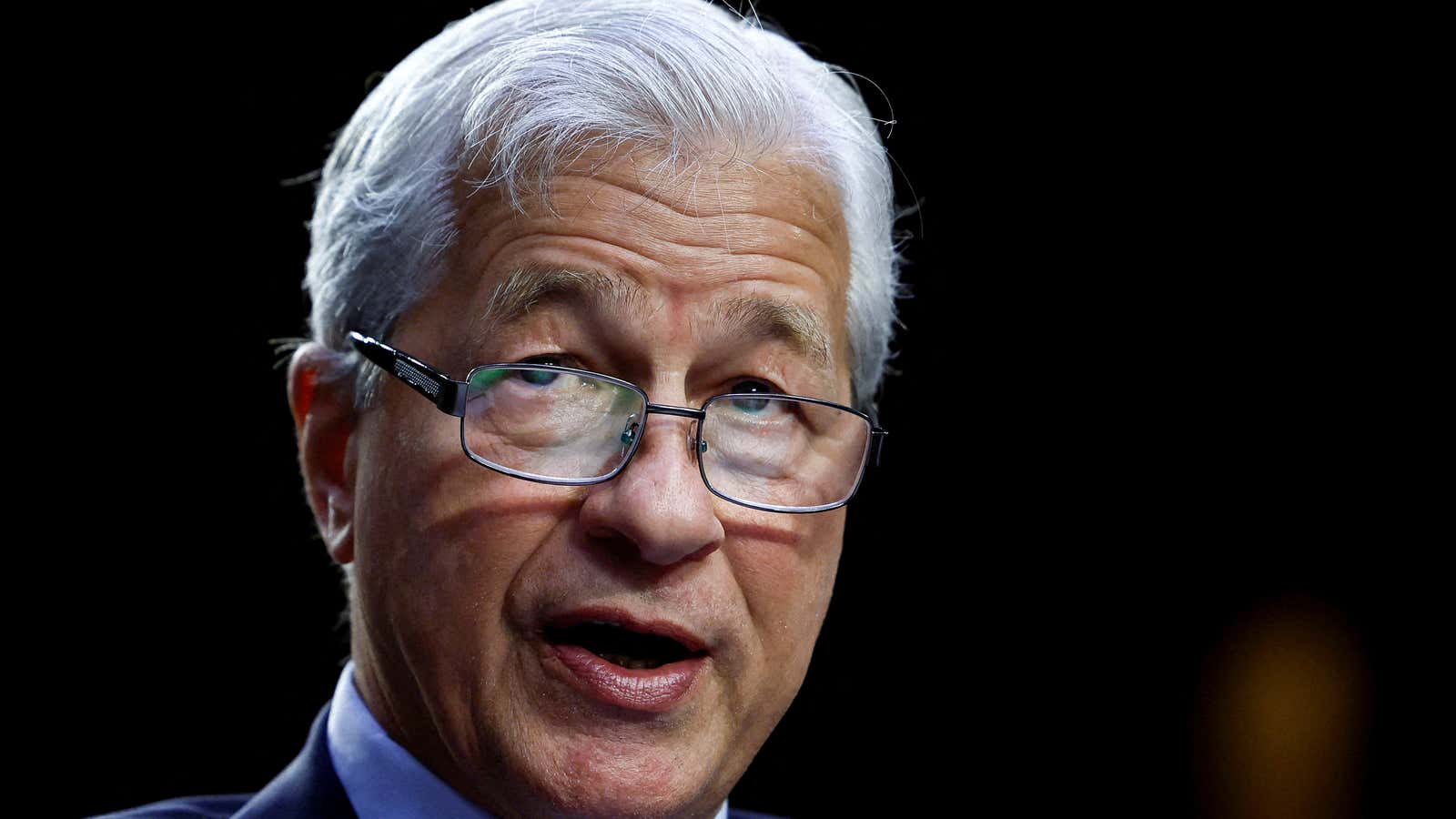At last year’s COP26 climate summit in Glasgow, one number grabbed a lot of headlines: $130 trillion, the sum total of assets managed by global financial institutions that had committed to reach net zero emissions across some or all of their portfolio by 2050.
The group that organized those commitments, the Glasgow Financial Alliance for Net Zero (GFANZ), was led by former Bank of England governor Mark Carney. It looked like one of the big success stories of the COP. But just a year on, as COP27 gets underway in Egypt, the project is already faltering.
Since COP26, the group’s banks have all published interim—for 2030 or earlier—carbon-cutting targets for specific sectors within their portfolios. While many of those focus on oil, gas, and electricity, they ignore other high-carbon sectors like agriculture and chemicals, according to a Nov. 8 report by the advocacy group ShareAction. Only seven of 43 banks in the group, including Lloyds, NatWest, and La Banque Postale, have set targets that cover their whole portfolio. And most banks have also committed only to curb their emissions “intensity”—emissions per dollar of lending—rather than absolute emissions, a distinction that leaves room for total emissions to increase.
Climate promises could leave banks open to lawsuits
To make matters worse, the week before COP27, GFANZ broke ties with Race to Zero, a UN group that had laid out a protocol for how financial institutions should reach net zero. This protocol specifically required them to phase out financing for new fossil fuel projects. That stricture proved too constraining for banks like JPMorgan Chase and Morgan Stanley, which had privately threatened to quit GFANZ in September, according to Bloomberg. The banks were concerned that committing to a strict, near-term end to fossil fuel financing—especially at a time when oil and gas companies are more profitable than ever—could expose them to lawsuits and shareholder revolts.
These legal risks notwithstanding, the International Energy Agency has made clear that fossil fuel rules of the kind framed by Race to Zero are the only credible route to net zero for financial institutions, said Vanessa Fajans-Turner, executive director of the advocacy group BankFWD: “There is no other plan that works.”
The climate club for banks needs stricter membership standards
Without adopting more stringent rules, GFANZ has just made it easier for banks to greenwash, Fajans-Turner told Quartz. “Banks have been able to ride the wave of reputational responsibility without backing their words up with key actions.”
The breakup with Race to Zero was particularly ill-timed, Fajans-Turner said, coming shortly after the US Securities and Exchange Commission indicated it might water down new carbon footprint disclosure regulations. Banks have demonstrated that without regulation they’re unwilling to pursue a science-based climate strategy, she said
At COP27—and especially on Nov. 9, earmarked as “finance day”—financial sector leaders like Carney will have a chance to clarify how GFANZ members should handle their fossil fuel portfolios. To maintain its credibility, GFANZ needs to reconsider whether the benefit of retaining blue-chip members is worth the cost of lowering its standards, said James Vaccaro, director of the Climate Safe Lending Network, an advocacy group.
“All this attention has gone to whether [JPMorgan Chase CEO] Jamie Dimon wants to be part of the club anymore,” he said. “If you want to mobilize the more progressive banks, then it’s actually a ball-and-chain to have those other institutions in it.”
GFANZ “needs to decide what it is,” Vaccaro said. “Unless they restrict finance for the companies that are killing the 1.5C goal, they’re wanting to have their cake and eat it too. That will be the litmus test for if GFANZ is a leadership organization or a lobbying organization.”
